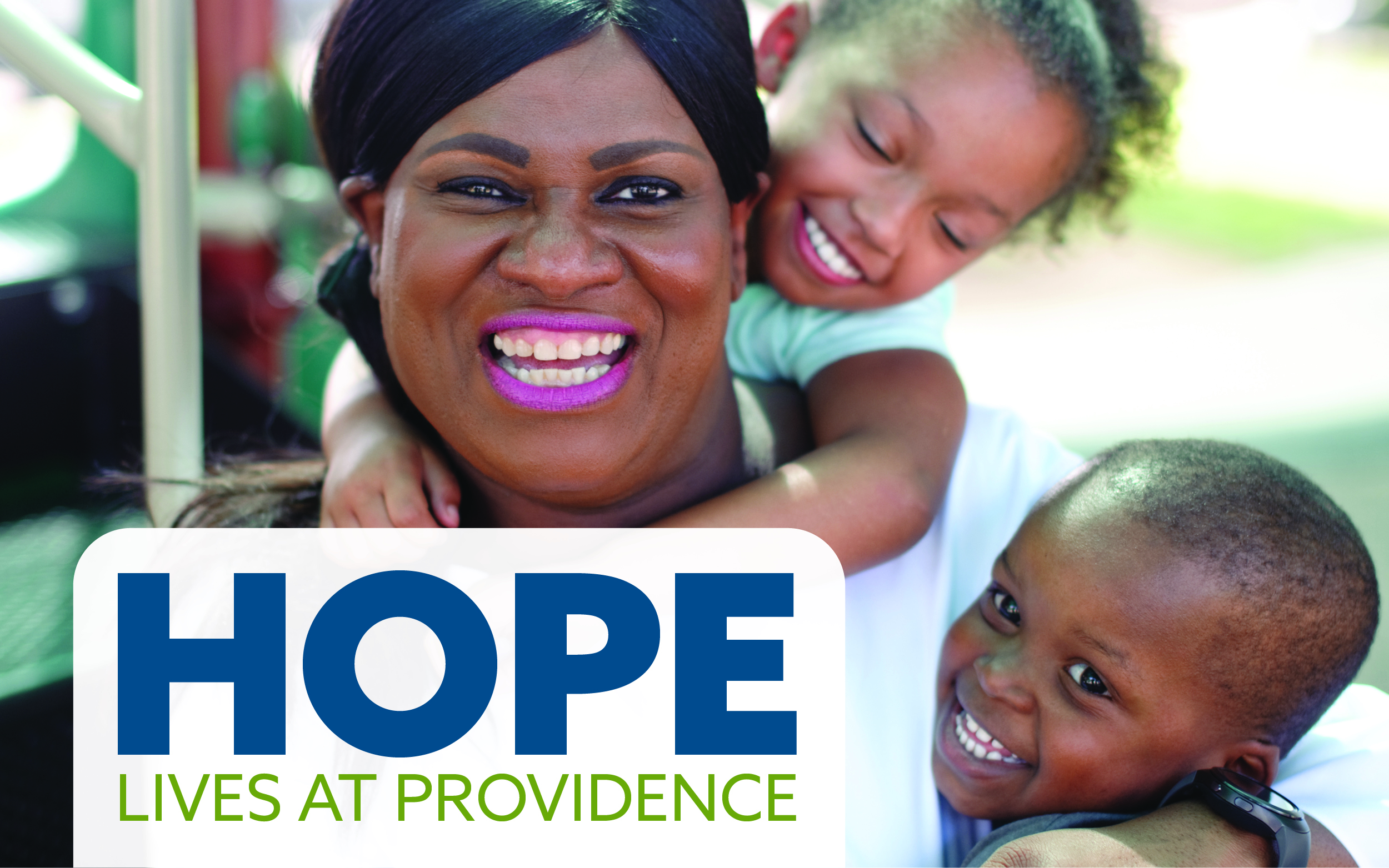
By Lee Merrill
n 1988, Mary Anne Selber and Jean Sayres saw a need and acted. Providence House was created to provide emergency shelter for homeless families with children. Verni Howard joined the organization as the executive director in 2015. “What I love about what we do here is the evolution of the work,” Howard said. “Once upon a time, the cure for homelessness was giving people food, clothing, and shelter. Not so much today. Homelessness no longer looks like a certain demographic. It looks like all of us."
The staff works tirelessly to equip families with the keys to avoiding homelessness. Howard’s approach is unique. “I come from corporate America,” she said. “I spent almost 20 years as a corporate banker, so my vision around homelessness is probably counterintuitive, but it works. I believe the only two things that can break the homeless cycle are education and workforce development.”
Behind the red door of Providence House, families find safety, acceptance, and a chance to take a breath. “Everything has to start with love,” Howard said. “When you cross that threshold, there is no judgment. You don’t have to tell me your story. What you do have to tell me is what you’re committed to do to change the trajectory of your life.”
The climate at Providence House is one of propulsion, not pity. On-site nurses and counselors address physical and emotional health. A dietary team provides healthy meals. Case managers work with each family to create a plan. They discover the strengths and skills the parents already possess using the WorkKeys assessment; then, they begin filling in the gaps with tools and support. “Whatever is hindering you from becoming self-sufficient, we provide, but you have to have skin in the game,” Howard said. Parents must commit to getting up every morning and doing whatever needs to be done to move forward. Healthy family habits are fostered such as getting children up, dressed, and to the bus stop on time and gathering as a family around the dinner table.
Education is a top priority. Case managers provide support in getting the necessary paperwork together to get school-age children in school. Howard is proud of the services Providence House offers children. “We have a four-star child development center,” she said. “I call that our crown jewel because I believe if we can get kids reading early enough and introduced to language, we have a fighting chance of circumventing a lifetime of homelessness for future generations.”
Education is not just for the children. Parents are provided with the opportunity to further their education through a HiSET program and a BPCC extension where they can earn a variety of job certifications. Providence House has also worked to become more community focused because, Howard said, “It is critical to us to help build up the whole community while we’re helping homeless people.”



